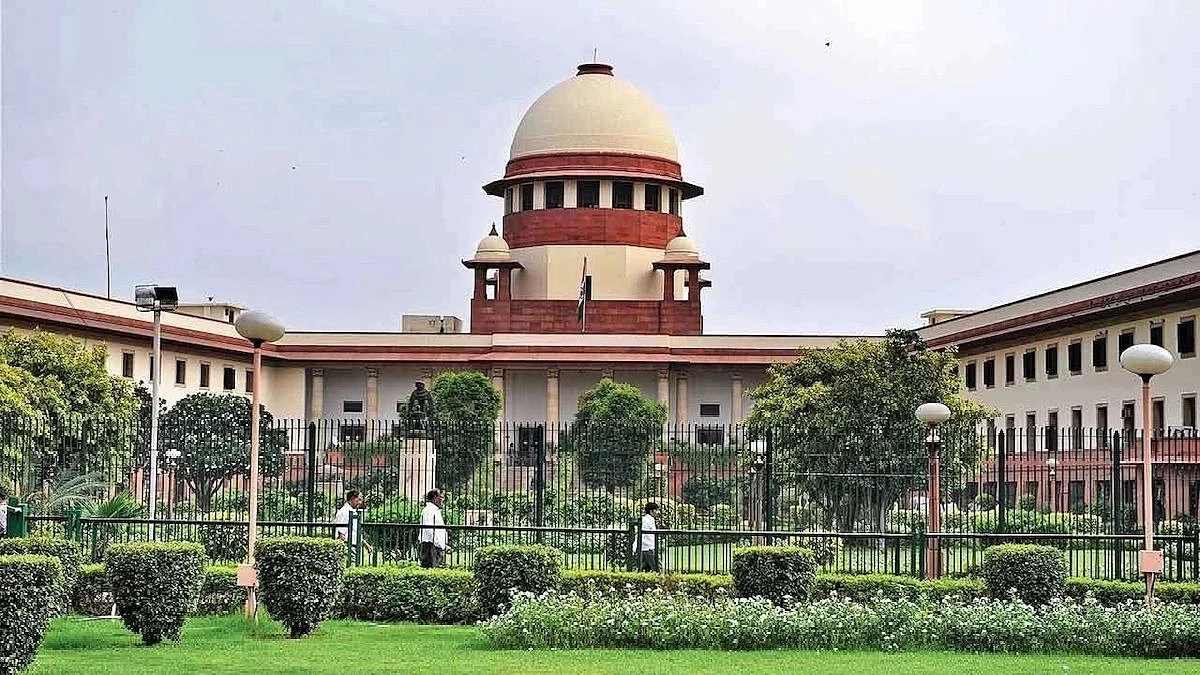SC pulls up TV channels on hate speech, asks why govt is 'mute spectator'
"Hate speech is layered... Like killing someone, you can do it in multiple ways, slowly or otherwise. They keep us hooked based on certain convictions," the SC observed

The Supreme Court on Wednesday held the "role of anchor" as "very important" while pulling up on TV channels over hate speech. It has also asked why the central government is "remaining a mute spectator", reported NDTV
"These speeches on mainstream media or social media are unregulated. It's (the anchors') duty to see that hate speech doesn't continue the moment someone does. Freedom of press is important... Ours is not as free as US but we should know where to draw a line," Justice KM Joseph observed at the hearing of a batch of petitions filed since 2021.
"Hate speech is layered... Like killing someone, you can do it in multiple ways, slowly or otherwise. They keep us hooked based on certain convictions," said the court, expanding on why hate speech interests viewers.
"Government should not take an adversarial stand but assist the court," it further observed, remarking, "Is this a trivial issue?"
The matter will next be heard on November 23, by when the apex court wants the Central government to clarify if it intends to act on Law Commission recommendations on curbing hate speech.
In July, the top court had directed the Union Home Ministry to prepare a detailed chart outlining states' compliance with the general directions issued by it in the judgments of Shakti Vahini and Tehseen Poonawalla cases towards curbing hate speech.
During today's hearing, the court said that politicians benefit the most out of hate speech and television channels give them the platform for the same.
Senior Counsel Sanjay Hegde also echoed the same sentiments. "Channels and politicians feed on such speech. Channels get money. They keep ten people in debates," he said.
He also argued that the self-regulation of news channels is done by a toothless body.
One of the petitioners, advocate Ashwini Kumar Upadhyay asked whether the court is equipped to go into individual violations each and every time it occurs.
"You have a point. Unless there is an institutional method to deal with it..." the court concurred.
"Yesterday, Mr (Joe) Biden said we cannot give hate oxygen," Hegde submitted.
"Not one bit ... we cannot give hate any air," Justice Joseph remarked.
On a query by the court on why government was not taking action, Hegde quipped, "They have said go from Arnab to Arnab. Complain about this channel, then the body headed by him will regulate."
At the outset, after Ashwini Upadhyay had conceded the 'bitter truth' that it was politicians frequently delivering hate speeches, Justice Joseph remarked, "Politicians benefit the most out of it. Television channels then give them platform".
The judge added that while freedom of press is important, anchors should know where to draw the line. "Many a times those who want to speak are muted ... TV content is for benefit of the listener, how will they make up their mind when there's a babble of voices," he said.
While Justice Joseph acknowledged that anchors will have their own views in line with the business interests of the channel, he stated that what is wrong is, " ... people invited not being allowed to express their own views, being muted or run down. Their [anchors'] right [to freedom of press] is lesser than that of listener."
The top court judge also expanded on how on freedom of the press entitles the listener/consumer of the news to greater rights than those disseminating it.
"Freedom of speech is meant for them, the listeners, so that they are not led astray. What we have in mind is, you could have a system where .. an interview methodology is laid out. If [the] anchor is going to take the most time in debates, if their questions will be so long ... That is what we want to see change," it said.
The bench expressed its inability to take over powers of the legislature and frame laws in this regard, but said it would be guided by the Vishakha judgment, which had provided basic definitions of sexual harassment at workplaces as well as guidelines to deal with the same.
Follow us on: Facebook, Twitter, Google News, Instagram
Join our official telegram channel (@nationalherald) and stay updated with the latest headlines
